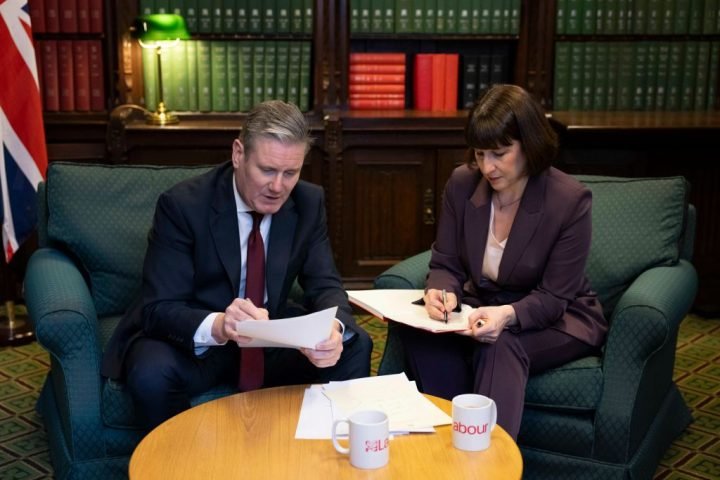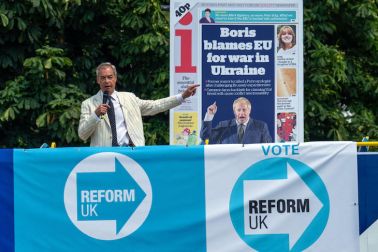Over the weekend, a leaked document revealed by the Guardian outlined different tax hikes the Labour party could impose, including changes to capital gains tax and inheritance tax. It’s evidence of what has long been suspected: that’s what’s been left out of the party’s manifesto (that is, almost every tax) remains on the table.
How might Labour justify not being more upfront about this ahead of the election? As I have noted on Coffee House before, Labour has gone to great lengths to insist all its plans are costed by tax hikes already announced. The lack of specificity in the manifesto, we’ve been told, is evidence that the party isn’t planning to go much further. So how would the party sell a pivot to the public, were it to start announcing more revenue-raising plans – especially if it were to do so within a year, or even a few months, of an election where the strong implication is that this was never the plan?
Nothing is lurking in the shadows, because the government hands over its draft Budget to the OBR
Cue Nick Thomas-Symonds, a shadow Cabinet Office minister who, when asked whether any of the parties were being totally honest about the tough financial decisions that will need to be made in the next Parliament, told Times Radio: ‘We’ve…been open, always, that we may open the books and discover the situation is even worse than it is at the moment. We’ve never hidden from that.’
This is the narrative the party is hoping to craft, as the polls suggest they are (very) comfortably heading towards Downing Street. Policies have been costed, as best they can be, but ministers will need to pop the hood and see what’s underneath before the full scale of the financial challenge is understood.
So what terrible surprises might await Labour, were they to find themselves in No. 11 in a few weeks time? What hidden horrors will be discovered among the public finances?
You can imagine all kinds of horrors, but in truth, you won’t find them. Or rather, they are already out in the open. There aren’t fiscal landmines or black holes to find, because the responsibility of revealing them was handed over to the Office for Budget Responsibility more than a decade ago. Nothing is lurking in the shadows, because twice a year the government hands over its draft Budget to the OBR, where it is heavily scrutinised. Then that scrutiny is published, alongside the Budget, which lays bare all of the tricks and traps which have been set for the following years.
And by all means, there are plenty we know about. The previous fiscal statements announced by Jeremy Hunt revealed a departmental spending black hole of around £20 billion over the course of the next Parliament: a plan for serious cuts in funding levels to public services, if not addressed in subsequent budgets. The Treasury was adamant that some of those billions could be made up for with productivity gains. It’s an ambitious goal, but one that successive governments have stated and failed to achieve.
Were that target to be missed again – a very, very likely outcome – it has to be filled somehow. Borrowing is unlikely to be an option (as Liz Truss learned the hard way). As Chancellor, Hunt was already cutting his fiscal headroom much finer than his predecessors. By his last Budget, the numbers only added up on the assumption that the government would unfreeze fuel duty by 2029 (something no Tory Chancellor has ever opted to do).
And none of this begins to account for the serious strains on the public finances that are only set to grow in the coming decades: demands on the NHS and the state pension, due to changing demographics, are problems that governments won’t even engage with yet (likely because there is no electorally-friendly answer yet).
It would be fair for Labour to stress that they are likely inheriting a very difficult financial situation: rubbing up against fiscal rules from day one, tax-and-spend already at record highs, public debt hovering around 100 per cent of GDP, and a stagnant economy that is unlikely to surprise with miraculous growth figures. Any kind of uptick will have to be earned with good policy.
But it is simply not the case that there is a massive discovery process to be had, which would mean tax rises that couldn’t have been foreseen ahead of the election. It does let Labour escape the question: why didn’t you level with the public sooner?






